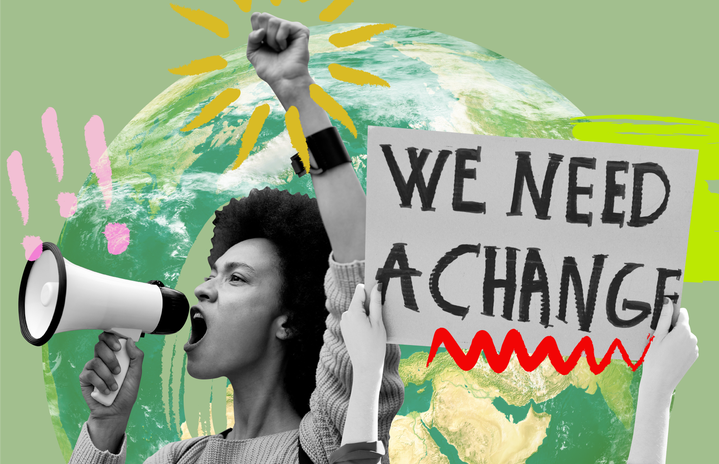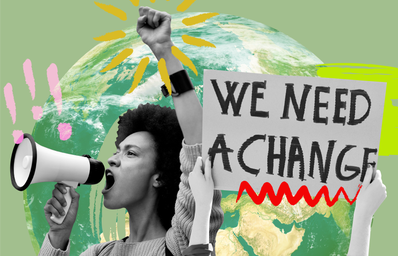You’ve heard it before, anything done in excess is poison. And I find this exact phrase to reign true in the context of “wokeness” and political correctness. Alone, this culture of “wokeness” and political correctness continues to grow to extremes that foster a potentially harmful society. But when balanced out with the art of emotional intelligence, “wokeness” and political correctness can fulfil their true purpose.
Being “woke” and politically correct are admirable qualities. And this is because of the context in which these terms emerged, that is; the social injustices prevalent in the society. These social injustices range from racism, sexism, the growing anti-LGBTQIA+ debates, discrimination against particular religions and the exclusion of disabled bodies. At its core, being woke is a beautiful idea. It is an ideal that, when adopted, challenges individuals to be aware of the complexities and the multiple realities that exist in their societies. It is an ideal that challenges people to recognize the fact that the playing field of this game called life is not the same for everyone. An ideal that calls society to examine the inequalities and disparities in the lived experiences of individuals and groups. This is the essence of wokeness- being aware of the things that are happening around you, regardless of whether or not they infringe on your right to being. In this sense, political correctness is an extension of this ideal. It is the action of adopting language and terminology that is in acknowledgement of these complexities and the multiple lived realities that exist in our society. It is adopting language and terminology that is sensitive to the diverse pool of people we find ourselves surrounded by – creating a tolerant environment for all.
It is quite understandable why both “wokeness” and political correctness have grown to be dominant terms in our society, particularly among Gen Z. It has fostered an environment where individuals are given the space and opportunity to raise concerns about the disparities prevalent in the society. It has allowed individuals to call out institutions and societal norms that have long silenced the multiple lived realities. It has given us the tools as human beings to keep each other accountable and conscious of the changing society around us. But there is a potentially harmful side to this dominance of “wokeness” and being politically correct in our society. We no longer know how to pass grace on to one another. We are no longer cognitive of the fact that as human beings, we grow at different paces, and that what’s true for one of us, is not necessarily going to be true for someone else. When we neglect to take this into consideration, we seek to infringe on how we are able to authentically interact with each other.
Don’t get me wrong, the use of the word ‘grace’ in this context does not necessarily extend to the likes of your Hitlers, Donald Trumps or “Karen’s”, but rather, to the people in between. These are the people that fall into the grey areas of these important conversations, or as we like to call them, “the fence-sitters”. It is for the vast majority of well-intentioned human beings and the likes of us who, in a sense, want nothing more than to coexist with the diverse pool that makes up the title of “HUMAN”. It is for the people who sometimes step on the eggshells, not because they intended to, but because they were not aware that those eggshells existed in the first place.
Herein lies the problem with the dominant use of “wokeness” and political correctness. There is no grace period. And I hate to reference your baby boomers, but in its extreme, it promotes a more policing environment than it does a tolerant one. I need to emphasize again- this isn’t for the outright bigots of our society. This is for the people who genuinely slip up, including leading activists and advocates. Because the reality is, that none of us are immune to stepping on eggshells. And sometimes, “wokeness” and political correctness divert from this, somehow quantifying how woke and politically correct human beings should and ought to be.
This is where emotional intelligence comes in. Traditionally, emotional intelligence is understood as the “capacity to be aware of, control, and express one’s emotions, and to handle interpersonal relationships judiciously and empathetically”. What I have come to understand about being emotionally intelligent is twofold: that two things can be true at once, and that there is indeed a limit to what individuals can be aware of, which is not always necessarily a bad thing. See, emotional intelligence finds itself in the gaps of “wokeness” and political correctness. It moves away from the “call-out” environment created by “wokeness” and instead, approaches the complexities of our society through grace and understanding. It holds space for the fact that some people just don’t know, and they may never know. Not because these people refuse to be educated or refuse to adapt to the changing societal norms, but because of their limits. We all have a certain capacity at which we can understand things and adapt to them, and though we may try to get everyone on the same level, it can never be done.
This new path to understanding “wokeness” and political correctness is through balance. And this balance finds itself through adopting a culture of emotional intelligence. As human beings, we need to find more ways to meet each other halfway. To pass more grace to each other, understanding that there is only so much that our counterparts can be aware of and attentive to in relation to their lived reality. This does mean that we shouldn’t try to be tolerant by adopting a new language and terminology. It doesn’t mean that we shouldn’t call out the disparities and exclusions in our society. It just means that we have to use our emotional intelligence to pass grace where applicable in these contexts, and to pass understanding to those situations where people find themselves in grey areas.


